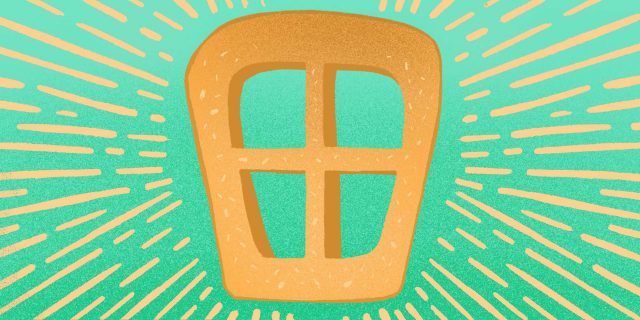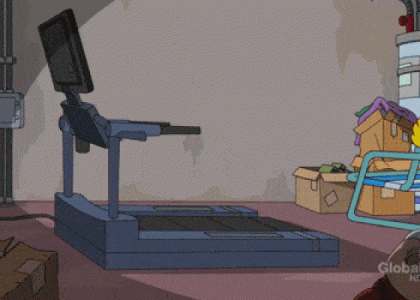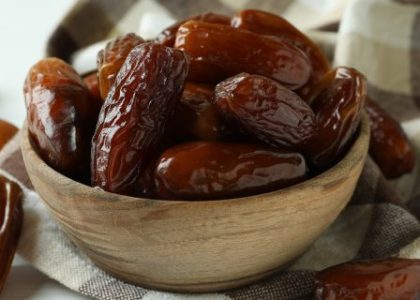The carbohydrate window: how and why to close it
It feels so good to eat sweets without guilt after a workout. But you don’t always have to do it.

How Carbohydrates Affect Muscle Growth
During a workout, there are micro-traumas in the muscles. And after exercise, the body uses protein to “repair” them and build muscle at the same time.
Thus, after heavy exercise, the body begins to accelerate the synthesis of protein from amino acids – this is anabolism or muscle building. In parallel, protein breakdown or catabolism occurs. The faster the synthesis and slower the decomposition, the more muscle you will build.
Carbohydrates and Protein Synthesis
Carbohydrates do not directly increase protein synthesis. It does not matter whether you drink a pure protein shake or add, for example, maltodextrin, a super-fast carbohydrate. This does not change the protein balance in any way – protein synthesis and breakdown remain the same.
If you just consume carbohydrates, the protein synthesis will be less and the breakdown will be more than in the case of protein or protein-carbohydrate supplements.
So, the main thing is to eat protein, and you can forget about carbohydrates altogether? Actually, no. Because carbohydrates do affect protein synthesis, but not directly, but through glycogen and hormones.
Carbohydrates and glycogen
Once in the body, carbohydrates are converted into glucose and used for energy production. If there are more than is needed for immediate energy expenditure, they are stored in muscles and liver in the form of glycogen and in fat cells in the form of fat.
Glycogen is used by muscles during physical activity, but its reserves are very small: one intense workout is enough to exhaust them completely.
The body needs to replenish glycogen in the muscles, and if you do not give it glucose, it starts glucogenesis: under the influence of the hormone cortisol, the body starts producing glucose from lactate (part of lactic acid) and amino acids of muscle tissue.
It turns out that if you don’t replenish your glycogen stores, the body will do it on its own, but it will accelerate catabolism – the breakdown of muscle tissue protein into amino acids.
You can eat immediately after the workout or some time later if you still have no appetite. The main thing is to meet the one hour deadline. If you are late, glycogen will be synthesized much slower.
Carbohydrates and hormones
Carbohydrates increase the production of anabolic hormones and decrease catabolic hormones. If you replenish carbohydrates in time, here’s what will happen:
Insulin production will increase, which helps amino acids get into muscle cells to repair muscle tissue. This hormone is produced in response to a rise in blood sugar, and to increase it, you need carbohydrates or a combination of carbohydrates and protein.
The amount of growth hormone will increase, which increases muscle buildup and slows down muscle breakdown. Consuming protein and carbohydrates immediately after a workout increases the production of this hormone for the next six hours. Protein without carbohydrates has no such effect.
The amount of cortisol will decrease. This hormone is a muscle-breaker. It initiates the withdrawal of amino acids from the muscles to be converted into glucose so that in an emergency you have enough fuel to fight or escape. So the less cortisol you have after a workout, the better.
As you can see, carbs are still needed to build muscle mass.
How many carbs to consume
It all depends on your goals.
If you want to lose weight and muscle loss doesn’t scare you, you can keep your carbohydrate window open. It doesn’t matter when you eat carbs, the important thing is to maintain a calorie deficit.
If you want to gain muscle mass, consume 0.8 grams of carbohydrates per kilogram of weight, combined with 20 grams of protein. For example, if you weigh 70 kilograms, you should eat 56-84 grams of carbohydrates (230-340 kcal) and 20 grams of protein (82 kcal) at least 60 minutes after working out, or better yet, right away.
Within one hour after your workout, eat 0.8 grams of carbohydrates per kilogram of weight + 20 grams of protein.
However, not any carbohydrates will do. And certainly not any high-carbohydrate food.
What sources of carbohydrates to choose
To increase the release of insulin and accelerate glycogen production, you need blood sugar levels to rise quickly. Therefore, fruits, vegetables and porridge are left for another time: fiber slows down the absorption of carbohydrates. Chocolates, cakes and fast food are also not suitable, because in addition to fast carbohydrates they contain a lot of fats.
Choose foods with a high glycemic index (GI) – those that quickly raise blood sugar, but without an abundance of fat: sweet drinks, marmalade, honey, marshmallows. These are pure carbohydrates with a high GI. Just don’t forget that you also need 20 grams of protein.
You can wash down the marmalade with a powdered protein shake, add three tablespoons of honey to the drink, or make a protein-carbohydrate shake from regular foods and take it with you to your workout.
For those who are used to simple solutions, there are gainers – ready-made protein-carbohydrate drinks. They contain about 75 grams of carbs and 15 grams of protein per 100 grams of the drink. You just dilute it and drink it after your workout.
Conclusions
If you are losing weight you don’t have to eat carbohydrates after the workout, if you are gaining muscle mass, eat them by all means.
Combine carbohydrates with protein: 0.8 grams of carbohydrates per kilogram of weight + 20 grams of protein.
Eat proteins and carbohydrates no later than one hour after your workout, or better yet, right after you finish.
All this is true only for those who work out hard. If you don’t even sweat the whole time, you obviously don’t need extra carbohydrates.





